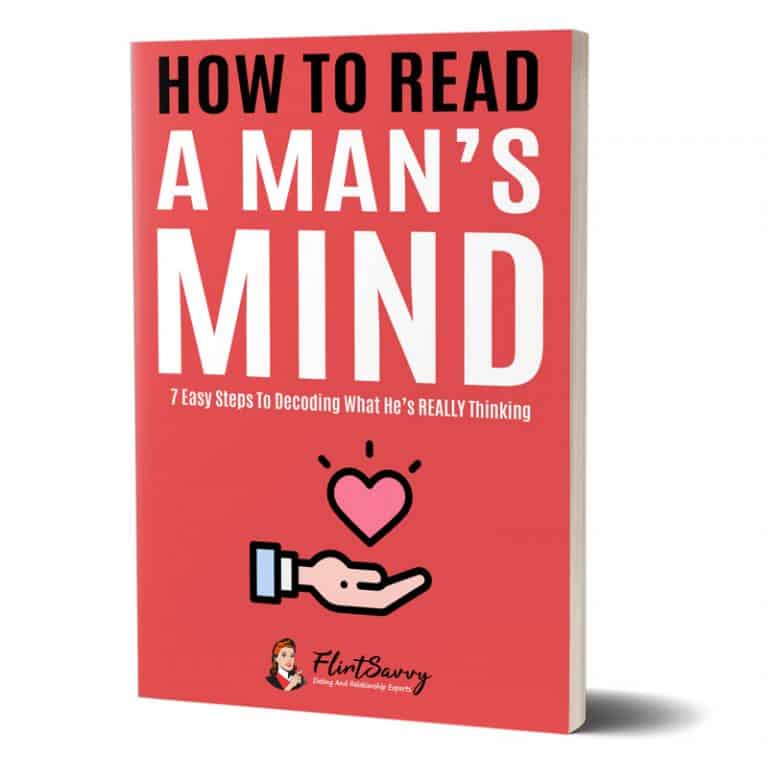Do you ever find yourself struggling to express your feelings to your significant other?
Maybe you’re afraid of being vulnerable or worried about how they’ll react. But communication is key in any relationship, and it’s important to be able to express your emotions openly and honestly.
In this article, we’ll explore some tips and techniques for expressing your feelings to your boyfriend in a way that is clear, respectful, and effective.
From using “I” statements to requesting specific actions, we’ve got you covered. So let’s dive in and learn how to communicate with our partners in a way that strengthens our relationships and deepens our connections.
How To Express Your Feelings To Your Boyfriend?
1. Set aside time for a conversation
It’s important to make sure that you and your boyfriend have a dedicated time to talk. This way, you can both be present and fully engaged in the conversation without any distractions.
2. Use “I” statements
When expressing your feelings, it’s important to use “I” statements instead of “you” statements. This helps to avoid placing blame or making your partner feel defensive. For example, instead of saying “You never listen to me,” try saying “I feel unheard when I try to talk to you.”
3. Be specific
When discussing your feelings with your boyfriend, it’s important to be specific about what is bothering you. Instead of making general statements, refer to specific actions or behaviors that are causing you distress. This will help your boyfriend understand exactly what is bothering you and how he can help.
4. Avoid criticism
While it’s important to be honest about your feelings, it’s equally important to avoid criticizing your partner’s character or commitment to the relationship. Instead, focus on specific behaviors that you would like to see changed.
5. Request specific actions
If there are specific actions that you would like your boyfriend to take, be clear about what those actions are. For example, if you need more alone time after work, ask for it directly. This will help your boyfriend understand exactly what he can do to support you.
6. Use physical touch
Sometimes, words aren’t enough to express our emotions. If you’re having trouble finding the right words, try using physical touch instead. A long hug or a gentle touch on the arm can convey love and support without the need for words.
Why Communication Is Important In Relationships
Effective communication is a crucial component of any healthy relationship. It allows partners to share their thoughts, feelings, and expectations with each other. Without communication, misunderstandings can arise, leading to hurt feelings, anger, resentment, and confusion.
One of the biggest reasons why communication is important in relationships is that it helps to establish and maintain intimacy. By expressing themselves and listening to their partner, couples can develop a deeper understanding of each other and create a stronger emotional bond. This emotional connection helps to build trust and mutual respect between partners.
In addition, good communication skills can help couples solve problems more effectively. When partners are able to communicate clearly and respectfully, they can work together to find solutions to issues that arise in their relationship. This leads to a more harmonious and fulfilling relationship.
Furthermore, communication helps to avoid misunderstandings that can cause unnecessary conflict. When couples are able to communicate effectively, they are less likely to make assumptions or jump to conclusions about their partner’s intentions or feelings. This reduces the likelihood of arguments and helps to maintain a positive and supportive relationship.
Ultimately, good communication is essential for any relationship to thrive. It allows partners to express themselves honestly and openly while also listening to and respecting each other’s thoughts and feelings. By developing strong communication skills, couples can build a foundation of trust, intimacy, and mutual respect that will help them weather any challenges that come their way.
The Importance Of Being Vulnerable
Being vulnerable is an essential part of any healthy relationship. It means willingly taking the risk to reveal your emotions and weaknesses to your partner. This emotional openness paves the way for deeper understanding and empathy, which are necessary for healthy long-term relationships. By being vulnerable, you allow others to better relate to you and imagine the nuance of your feelings.
Unfortunately, many people see vulnerability as a weakness and have made themselves ‘strong’ by toughening up and protecting themselves from being hurt. However, when we close down our vulnerability, we also shield ourselves from love, intimacy, and connection. Vulnerability is the driving force of connection, and it’s impossible to connect without it. Without vulnerability, relationships struggle.
Vulnerability is openness to experiences, people, and uncertainty. It’s terrifying at times, but it’s also brave. Occasionally we may get hurt in a relationship, but relationship pain is an unavoidable part of being human. When it happens, we can see it as a learning experience or a redirection rather than a warning to protect ourselves from being hurt again. By shutting down to the risks of being vulnerable, we also shut down to the possibilities – the possibility of joy, intimacy, closeness, gratitude, and connection.
In a relationship, vulnerability means remaining open to sharing all parts of yourself with your partner and not being afraid of being judged or criticized. It means feeling comfortable enough to turn towards your loved ones in your lowest moments rather than trying to isolate yourself and turn away from their support. Vulnerability involves feeling safe enough to share your thoughts, beliefs, values, and past experiences with your partner. It also means being able to share your feelings – even when those feelings are difficult ones like sadness, anger, or frustration – in a nonconfrontational way.
When we speak from a place of how we feel and share our fears and dreams with our partner, we give them the power to either hear us or hurt us. Being vulnerable means accepting that we can’t control what will happen but that we’ll still act or speak in a way that’s authentic to us. By practicing vulnerability in our relationships, we build trust, closeness, and a sense of belonging with our partners.
Using I Statements To Express Your Feelings
When expressing your feelings to your boyfriend, it’s important to use “I” statements. This means focusing on how you feel instead of placing blame on your partner. For example, instead of saying “You make me feel angry,” try saying “I feel angry when this happens.” This helps to avoid making your partner feel defensive and allows them to understand how their actions are affecting you.
It’s also important to be specific about your feelings. Instead of making general statements, refer to specific actions or behaviors that are causing you distress. This will help your boyfriend understand exactly what is bothering you and how he can help.
When discussing your feelings, it’s important to avoid criticism. Instead, focus on specific behaviors that you would like to see changed. Criticizing your partner’s character or commitment to the relationship can be hurtful and counterproductive.
If there are specific actions that you would like your boyfriend to take, be clear about what those actions are. For example, if you need more quality time together, ask for it directly. This will help your boyfriend understand exactly what he can do to support you.
Finally, if you’re having trouble finding the right words to express your feelings, try using physical touch instead. A long hug or a gentle touch on the arm can convey love and support without the need for words. Remember, expressing your feelings in a healthy and constructive way is essential for a strong and fulfilling relationship.
Requesting Specific Actions From Your Boyfriend
When requesting specific actions from your boyfriend, it’s important to make sure your requests are clear and actionable. One way to do this is to use the SMART criteria: small, measurable, achievable, relevant, and time-limited. For example, instead of asking your boyfriend to “help out more,” you could ask him to take care of the weekly grocery order to help you out. This request is specific, measurable (did he fulfill the request or not?), achievable (it only takes a few hours), relevant (it takes a clear amount of work off your plate), and time-limited (you could ask him to do it for a month and evaluate how it went).
It’s also important to avoid making vague requests like “be more romantic” or “listen better.” Instead, provide specific actions that your boyfriend can take. For example, you could ask him to plan a monthly date night for the next three months if you want him to be more romantic. Or, you could ask him to repeat back everything you say for a week or during a certain time of day if you want him to listen better.
When making requests, remember to focus on the message you’re trying to send your partner and use “I” statements instead of “you” statements. Avoid criticism and be honest about your feelings without attacking your partner’s character or commitment to the relationship. By communicating clearly and respectfully, you can work together with your boyfriend to maintain healthy communication and stay on the same page.
Active Listening: Encouraging Your Boyfriend To Share His Feelings Too
Active listening is a powerful tool that can help your boyfriend feel more comfortable sharing his feelings with you. It involves not only hearing what your partner is saying but also seeking to understand their meaning and intent behind their words. To actively listen to your boyfriend, try the following techniques:
1. Be fully present in the conversation
When your boyfriend is sharing his feelings with you, make sure to give him your undivided attention. Put away any distractions and focus solely on what he is saying.
2. Show interest by practicing good eye contact
Maintaining eye contact shows your boyfriend that you are actively engaged in the conversation and interested in what he has to say.
3. Use nonverbal cues
Nonverbal cues such as nodding or leaning in can show your boyfriend that you are listening and understanding his perspective.
4. Ask open-ended questions
Asking open-ended questions can encourage your boyfriend to share more about his feelings and experiences. Avoid asking yes or no questions and instead ask questions that require more detailed responses.
5. Paraphrase and reflect back what has been said
Summarizing what your boyfriend has said and reflecting it back to him can show that you are actively listening and trying to understand his perspective.
6. Withhold judgment and advice
Avoid jumping to conclusions or offering unsolicited advice. Instead, focus on listening and understanding your boyfriend’s perspective without judgment.
By actively listening to your boyfriend, you can create a safe space for him to share his feelings without fear of judgment or criticism. This can help strengthen your relationship and build trust between the two of you.
Overcoming Fear Of Rejection Or Judgement
Expressing your feelings to your boyfriend can be scary, especially if you have a fear of rejection or judgement. However, taking steps to overcome this fear can help you communicate more effectively and build a stronger relationship.
First, it’s important to identify the root of your fear. Ask yourself why you’re afraid of expressing your feelings. Are you worried that your boyfriend will reject you? Do you fear judgement or criticism? Once you understand the source of your fear, you can start to address it.
One way to overcome your fear of rejection or judgement is to practice self-compassion. Remember that it’s okay to have fears and insecurities, and that you’re not alone in feeling this way. Treat yourself with kindness and understanding, and try not to judge yourself too harshly.
Another helpful strategy is to practice mindfulness. This involves paying attention to the present moment without judgement or distraction. By focusing on your breath or other sensations in your body, you can calm your mind and reduce anxiety.
It’s also important to challenge any negative thoughts or beliefs that are contributing to your fear of rejection or judgement. For example, if you believe that expressing your feelings will always lead to rejection, try to find evidence that contradicts this belief. Remind yourself of times when you were able to express yourself and received a positive response.
Finally, consider seeking support from a therapist or counselor. A trained professional can help you work through your fears and develop strategies for expressing your feelings in a healthy and effective way. With time and practice, you can overcome your fear of rejection or judgement and build a stronger, more fulfilling relationship with your boyfriend.






